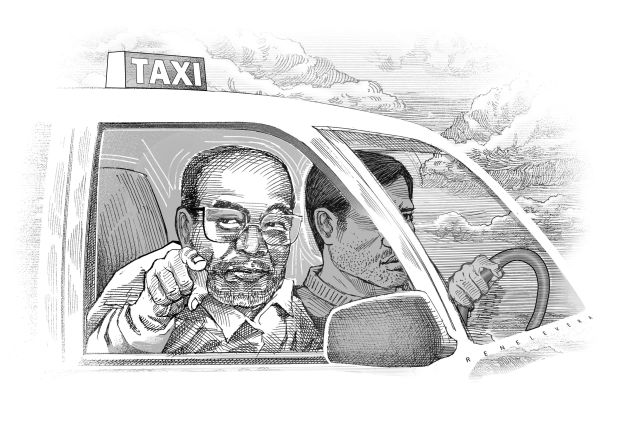
At one time I took a taxicab to go to my workplace. When we passed by a great number of houses in tight clusters, I told the driver that, for years, an extensive cornfield had thrived on that spread of land, but that suddenly the houses mushroomed, occupying every inch of the huge area. I added what I had heard on the grapevine, that the caretaker of the land had parceled it out into lots, which he offered for sale, and, because of the crying need for a home, in no time a multitude snapped up the lots, and the next morning began building their houses on the property.
The driver turned to me and said that he knew the caretaker and the reason why the latter did what he did. He said that the caretaker faced a case in court, which, if I correctly remember, had to do with physical violence, if not death. The caretaker failed to get the assistance of the landowner, and so, in retaliation, when the owner’s back was turned, he partitioned the property and sold the lots to the general public.
I found the driver well apprised of many details about the caretaker, and under apparent compulsion to talk about him. When we finally reached my destination, after I had paid the fare and as I prepared to get out, he said by way of a parting shot, “I’m the caretaker.”
This took me by surprise. I did not know how to react. I realized that I had traveled with someone dangerous and perhaps armed, and I thanked God that I did not say anything that could have provoked him to harm me. Once safely outside, I looked at him and turned away, and he drove on to pick up another passenger.
Now and then, we get to know someone in a dramatic way.
In Luke’s Gospel, Jesus introduced himself to his people in just such a manner.
After fasting for 40 days in the desert, Jesus returned to Galilee and came to Nazareth where he had grown up, and, it being Sabbath, he went into the synagogue. He stood up to read, for which purpose he received a scroll. There he found this passage from Isaiah:
“The Spirit of the Lord is upon me,
because he has anointed me
to bring glad tidings to the poor.
He has sent me to proclaim liberty to captives
and recovery of sight to the blind,
to let the oppressed go free,
and to proclaim a year acceptable to the Lord.”
The passage describes the special action of God and mentions the Spirit promised to the messianic king. Nothing unusual here, except that, when he finished reading, and having rolled up the scroll and handed it back to the attendant, Jesus sat down, the eyes of everyone in the synagogue looking intently at him. Jesus declared, “Today this Scripture passage is fulfilled in your hearing.”
He not only announced the beginning of the messianic era, he moreover proclaimed himself as the messiah.
Imagine the shock of those who heard him, his neighbors, who knew him to be just a regular guy, one of them, a mere carpenter’s son. The messiah?
When the taxi driver said that he was the caretaker, I did not know whether or not I should believe him. Faith features on a day-to-day basis, and oftentimes relationships require it. Of course, I could have checked the taxi driver’s claim, but for the moment I had other, more important things to do.
Christ, however, stakes a claim on our choice whether to believe him or not, because by his words and sufferings he raised the ante. It is a fact that he lived, was crucified and died, and that soon after that his tomb was found empty, which could not be sufficiently explained except by his Resurrection, which backed up his claim to be God.
Of course, in one’s desire to believe, one may check the truth of Jesus’ assertions. There is no such thing as blind faith.
One may relate faith and reason, in the manner of St. Anselm of Canterbury, who, taking the cue from St. Augustine, used as motto, Credo ut intelligam: “I believe so that I may understand.”